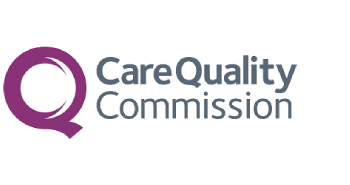Raising a child is a journey filled with joy, challenges, and endless learning experiences. However, when a child begins to exhibit behaviours that seem unusual or challenging, parents can find themselves overwhelmed and searching for answers. Two of the most common neurodevelopmental disorders affecting children today are Attention Deficit Hyperactivity Disorder (ADHD) and Autism Spectrum Disorder (ASD). These conditions, while distinct, often share overlapping symptoms, making early diagnosis and intervention crucial for effective support.
This article aims to demystify ADHD and ASD, providing you with a clear understanding of their signs and symptoms, as well as the importance of early intervention. By the end of this piece, you’ll be equipped with the knowledge to identify potential issues early on and understand the steps you can take to ensure your child receives the best possible care.
What is ADHD and ASD?
ADHD: A Brief Overview
Attention Deficit Hyperactivity Disorder (ADHD) is a neurodevelopmental disorder characterised by persistent patterns of inattention, hyperactivity, and impulsivity. These behaviours can significantly impact a child’s ability to function in everyday settings, such as school and home.
Children with ADHD may struggle to focus on tasks, be easily distracted, act impulsively, or be overly active in situations where it’s not appropriate. While all children may display these behaviours occasionally, those with ADHD exhibit them to a degree that is inconsistent with their developmental level and that negatively affects their daily life.
ASD: A Brief Overview
Autism Spectrum Disorder (ASD) is another neurodevelopmental condition, characterised by challenges in social interaction, communication, and the presence of restricted, repetitive behaviours. The term “spectrum” reflects the wide range of symptoms and severity that individuals with ASD can experience.
Children with ASD may find it difficult to make eye contact, understand social cues, or engage in typical conversations. They might also exhibit repetitive behaviours, have a strong preference for routines, or be highly sensitive to changes in their environment.
ADHD and ASD: Overlapping Characteristics
Although ADHD and ASD are distinct conditions, they can share some overlapping symptoms, which can complicate diagnosis. For instance, both conditions may involve difficulties with social interactions, impulsivity, and a tendency to become easily overwhelmed. However, understanding the nuances between these two disorders is crucial for providing the right support.
Signs and Symptoms of ADHD in Children
Inattention
Children with ADHD may struggle to focus on tasks, be easily distracted, act impulsively, or be overly active in situations where it’s not appropriate. While all children may display these behaviours occasionally, those with ADHD exhibit them to a degree that is inconsistent with their developmental level and that negatively affects their daily life.
Hyperactivity
Hyperactivity in ADHD manifests as excessive fidgeting, an inability to stay seated when expected, running or climbing in inappropriate situations, or talking excessively. This high level of activity can be exhausting not just for the child, but also for those around them.
Impulsivity
Impulsivity in children with ADHD may show as difficulty waiting their turn, blurting out answers before a question has been completed, or interrupting others during conversations. This can lead to challenges in social settings and contribute to frustration both for the child and their peers.
Signs and Symptoms of ASD in Children
Social Interaction Challenges
Children with ASD often face significant difficulties in social interactions. They may struggle to understand the subtleties of social communication, such as tone of voice, facial expressions, or body language. This can result in challenges making friends or engaging in group activities.
Communication Difficulties
Communication issues are another hallmark of ASD. Some children may have delayed speech development, use language in unusual ways, or have difficulty sustaining a conversation. Others might be non-verbal and rely on alternative forms of communication, such as gestures or visual aids.
Repetitive Behaviours and Restricted Interests
Children with ASD often engage in repetitive behaviours, such as hand-flapping, rocking, or insistence on sameness. They may also have highly focused interests, becoming fixated on specific topics or objects. These behaviours can be comforting to the child but may also interfere with their ability to engage in typical daily activities.
Sensory Sensitivities
Many children with ASD experience heightened or reduced sensitivity to sensory stimuli. For instance, they might be overly sensitive to loud noises, bright lights, or certain textures. Conversely, some children might seek out sensory experiences, such as touching objects or moving constantly.
The Importance of Early Diagnosis and Intervention
Early diagnosis of ADHD and ASD is crucial for several reasons. First, it allows parents and caregivers to understand their child’s behaviour and challenges better, which can be a tremendous relief. More importantly, early intervention can significantly improve a child’s developmental trajectory.
Tailored Support and Interventions
With an early diagnosis, children with ADHD or ASD can benefit from tailored interventions that address their specific needs. These might include behavioural therapies, speech and language therapy, occupational therapy, and, in some cases, medication. Early intervention can help children develop essential skills, improve their ability to function in social settings, and reduce the severity of symptoms.
Educational Support
Children with ADHD or ASD often require additional support in educational settings. This might include specialised teaching methods, classroom accommodations, or one-on-one support. An early diagnosis ensures that these supports can be put in place as soon as possible, helping the child succeed academically.
Family Support
Early diagnosis also provides families with the tools and resources they need to support their child effectively. This might include training on managing challenging behaviours, strategies for improving communication, and connecting with support networks.
About KPI:Access
Who We Are
KPI:Access is a dedicated division of KPI: Health, an NHS partner and insourcing company committed to reducing waiting times and improving healthcare efficiency across the UK. Our mission is to provide accessible and affordable assessments for ADHD and ASD, ensuring that every child has the opportunity to reach their full potential.
Our Services
At KPI:Access, we understand the importance of a timely and accurate diagnosis. KPI:Access is led by a team of neuro specialists, each with many years of experience in assessing and treating neurodevelopmental disorders. Our extensive background ensures that our assessments are thorough, compassionate, and tailored to your child’s needs.
We offer:
- Fast Assessments: Get your child seen by our clinical team within a few days, without the need for a GP referral.
- Comprehensive Evaluations: We assess a wide range of behaviours and challenges to provide a clear and accurate diagnosis.
- No Exclusions: Every child who is booked with us will receive an assessment, ensuring that no one is left without support.
Why Choose Us?
Choosing KPI:Access means choosing a team that is committed to your child’s well-being. We provide a supportive environment where you and your child can feel understood and cared for. Our goal is to provide you the knowledge and tools you need to help your child navigate the challenges of ADHD or ASD.
If you suspect your child may have ADHD or ASD, don’t wait. Early diagnosis and intervention can make all the difference. Contact KPI:Access today to book an assessment and take the first step towards understanding and supporting your child’s unique needs.
Understanding ADHD and ASD in children is crucial for providing the support they need to thrive. Early diagnosis, tailored interventions, and compassionate care can significantly improve outcomes for children with these conditions. At KPI:Access, we are here to guide you through every step of the process, ensuring that your child receives the best possible care and support.





